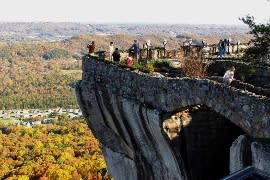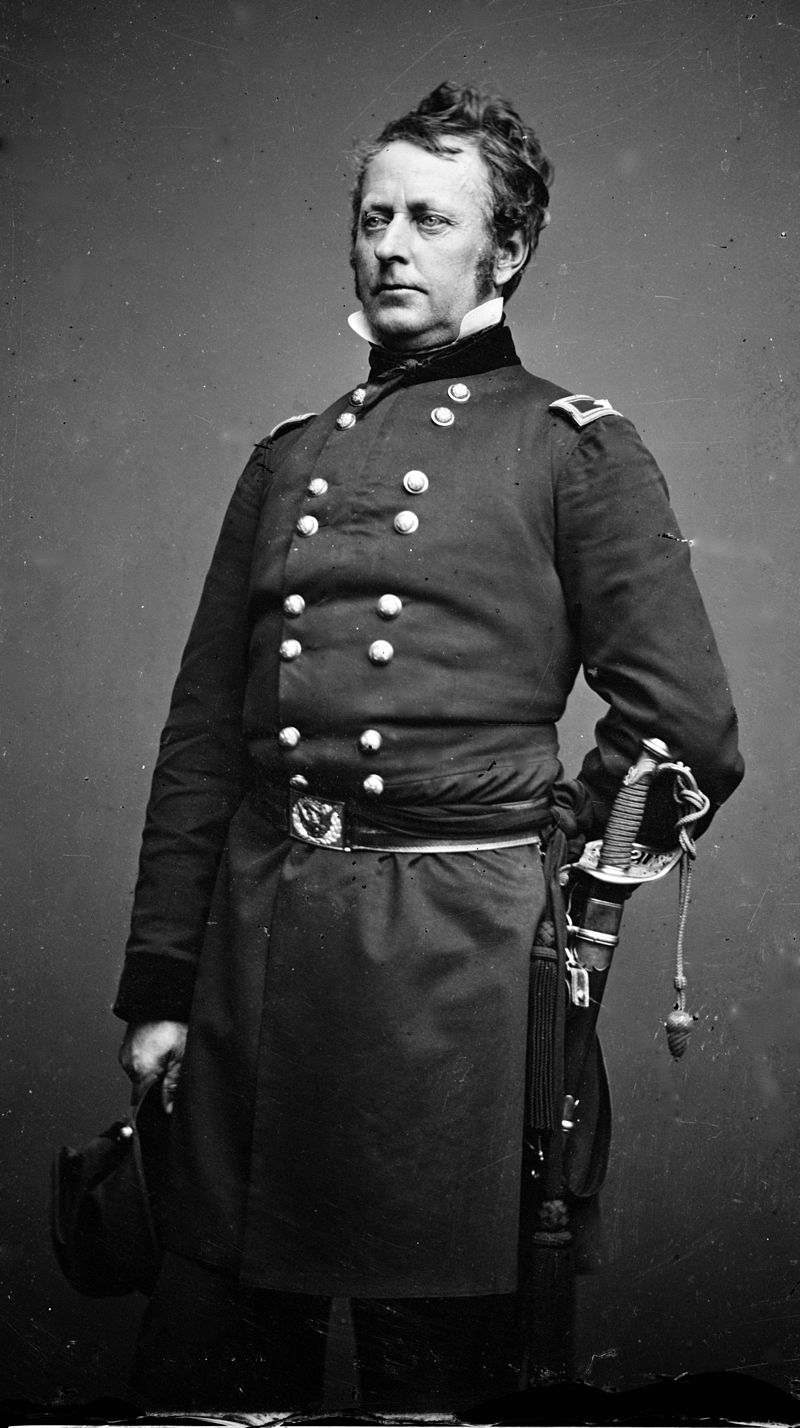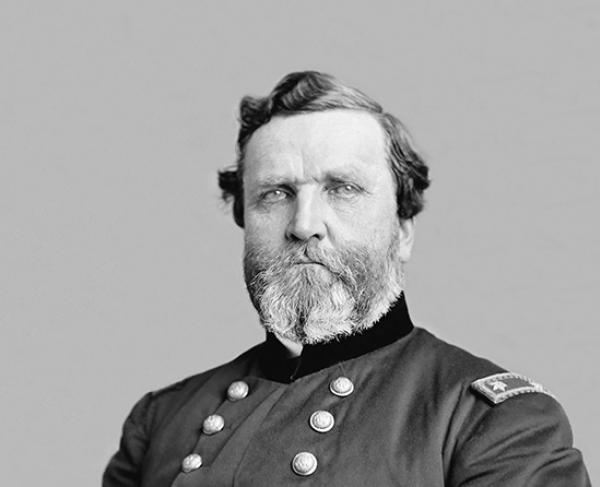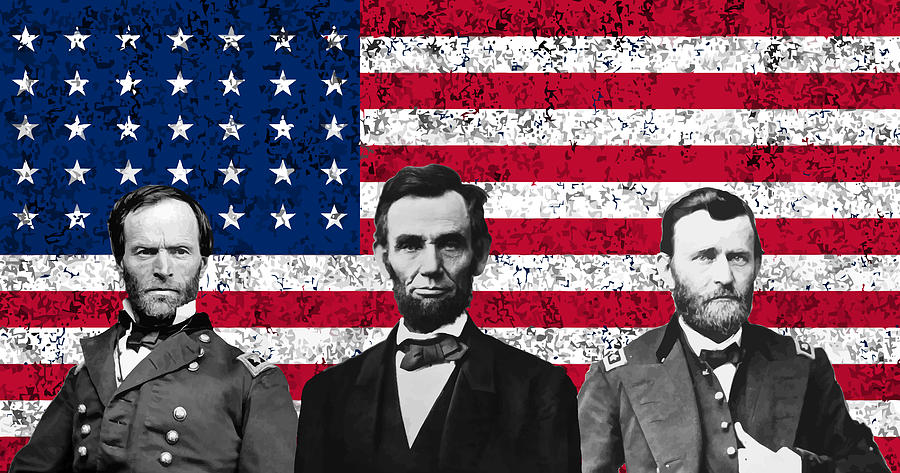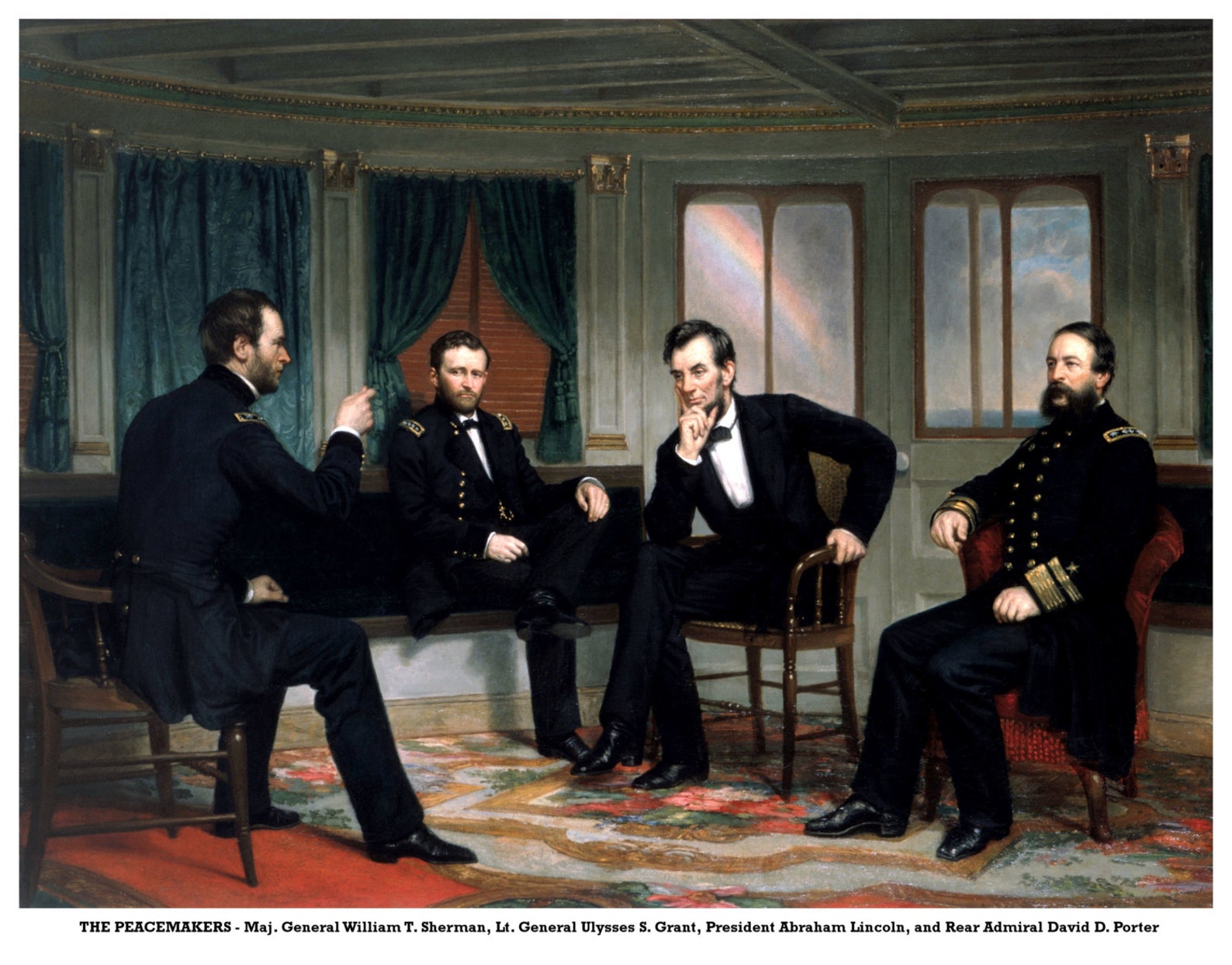The idea to write this chapter occurred as I was watching a YouTube video of an interview of Shelby Foote on Book TV, a C-Span2 program. Foote is famous for his three volume effort, The Civil War: A Narrative. This series was made famous, popular and successful by Foote's appearance on Ken Burns' PBS show, The Civil War. You can click on all the hyper links if my discussion is insufficient.
Brian Lamb began the interview, by asking about the cause and impact of the Civil War. This reminded me of my high school history teacher, Dr. William P. Garvey. At the time he was my teacher, Mr. Garvey was still working on his masters and doctorate in history, at the University of Pittsburgh.
Garvey was my teacher for Pennsylvania history, during my freshman year and American history in my junior year. Of course, the major discussion of the Civil War was in American history.
The thing I remember most was his explanation of the underlying causes of the war. He compared it to an explosive device, a bomb. I will have to paraphrase, because of faded memory, but it went something like this.
First there has to be an explosive substance, something that will blow up, under the right conditions, such asTNT or nitroglycerin. In Garvey's opinion, this was the vagueness of the Constitution with regard to the relationship of the Federal government to the states. You have to remember the situation when the Constitution was created. Briefly, the states had been operating under the Articles of Confederation, which created a very weak central government. The states did not even have a common currency. Some of the Founding Fathers did not believe there should be a strong central government and of course some did. Jefferson was one who opposed it and Hamilton was in favor. Jefferson was out of the country at the time and was not happy when he learned what had been created. Hamilton would have made it stronger. Jefferson was from a southern state and Hamilton a northern state. As you can guess, this was beginning to become a regional disagreement. The Framers of the Constitution had to tread carefully and compromise to get enough agreement to accept it. Therefore, there was so much vagueness, that some states believed they could secede from the Union, if they had a fundamental disagreement with policy.
Secondly, a bomb must have a fuse, an ignitor, something that will cause the explosive substance to explode. Garvey asserted that slavery was this fuse. As I pointed out, the Constitution created a strong central government and there was concern in the South, that the 'Peculiar Institution' of slavery would be abolished by the government, because of growing anti-slavery sentiment in the North.
Third, the bomb must have a spark to light the fuse. If my memory is correct, Garvey said the election of Lincoln as president was this spark. I don't think Lincoln ran strongly on abolishing slavery, but his position was well known from the famous Lincoln Douglas Debates, which occurred when Lincoln ran against incumbent Illinois Senator Stephen Douglas in 1858, two years before the Civil War began.
Once again, I use hyper links to provide additional information and I use WikiPedia a lot, despite the many criticisms of its accuracy, because it has a standard format for comparison. If more information is required, you can make use of your research skills on the World Wide Web. An in-depth discussion of the preceding is not in the scope of my post.
After all, the blog is about my favorite subject, the one about which I am best informed, me. I have been discussing the elements that went into the development of my career, as a professional pilot. I am describing how, step by step, the pieces came together, like a jigsaw puzzle.
I am the beneficiary or victim of 12 years of education in Catholic schools. I say beneficiary, because it was a very good education. I believe I was taught more pertinent things in 12 years, than most people learn through post graduate degrees today. I don't really see myself as a victim at any stage of my life, but I used that word to get your attention. I believe my parents and educators developed the Type B side of my personality and the US Army helped me develop the Type A side. In my professional pilot career, I believe both sides came in handy.
Mr. Garvey was the teacher of whom I have the strongest memories. In my life as an instructor, I think I used techniques I learned in his classroom. He spoke in a way that demanded your attention. The instructor training in the army taught that and explained how and why to do it. I discussed some of that early in the blog, talking about military bearing, etc. He knew the subject and it was obvious he enjoyed it. He allowed and even required class participation. You could ask questions and even disagree, up to a point. There were the usual time constraints and the lesson plan must be completed.
Garvey instilled a love of American history in me. As I have blogged previously, this came in handy when I lived in Atlanta and encountered people who harbored a resentment of people from northern states, although they often lacked a good base of knowledge about WTF actually happened. With even the most basic reading about the war, I was able to shut most of them up. Some of them reminded me of the Japanese trying to build a case that they were actually the victims of World War II.
Of course, the internet did not exist for most of my life. Some time after it showed up, I decided to search for William Garvey. Through a typing error, I learned that there was a Dr. William Harvey, who discovered the circulatory system of the human body. At the time of my research, Bill Garvey was president of Mercyhurst College.
We have all probably been asked at some time, what person, dead or alive, we would love to meet and chat with. Garvey would have been such a person for me, based on our time in class and my subsequent obsession with American history as an adult. Lincoln and Grant would be historic people in the category for me also.
I decided to call Mercyhurst to see if I could have a phone chat with Mr. Garvey. I talked to his secretary and had to make an appointment. She called back at the appointed time and after assuring it was me, connected Doctor Garvey. He acted as if he remembered me and said I was a good student. I was tempted to throw the bullshit flag on that. I told him about my memory of things I learned about teaching from him and that I modeled my techniques after them. I told him I had 2 kids and he told me to send them to Mercyhurst. I would have gotten into more of a history discussion, but the secretary, appointment, and Dr. Garvey crap kind of knocked me off my stride. I didn't want to take up too much of his precious time.
I think it is worth mentioning an incident I witnessed in the classroom during my freshman year in high school. Garvey was lecturing on something in Pennsylvania history and standing about 6 feet from the classroom door, when the bell rang. Bill continued lecturing and all members in the class were wise enough to remain seated as long as he was speaking, except one. Michael "Mickey" Markle got up and started walking from the left side of the room, toward the door and between Garvey and the class. As he passed, Bill grabbed the back of Mickey's head and smashed his face into one of the desks in the front row. Mickey's glasses were broken, but I don't remember much more about that.
Actually, this was not as shocking as it may seem now. In that, my 9th year of Catholic eduction, I was not unfamiliar with physical punishment. I always say I believe the good Sisters Of Saint Joseph invented some of the submission holds of modern day Mixed Martial Arts. My parents also did not spare the rod. Despite that, I still do not see myself as a victim at any time during my life. If I got a whoopin', I probably deserved it.
Bill Garvey was still around two years later for my American history classes, so I'm guessing he paid some price for that episode, but was obviously not fired.
Garvey was born 10 years before me, so he was about 25 to 27 at the time I was his student. There were some things about him that seemed a little strange to us, but nothing we could pinpoint. At the time I began to research him on the internet, there were positive articles that mentioned the things that were in his obituary, when he died in 2017.
https://www.burtonquinnscott.com/obituaries/dr-william-garvey
However, not long after our phone conversation, this kind of stuff came to the surface.
https://www.goerie.com/story/news/local/2017/08/10/garvey-former-mercyhurst-president-dies/19823413007/
Yes, my educational hero was accused of sexual child abuse and an investigation paid for by Mercyhurst found that the accusations "appear to have merit". By that time, it was past statute of limitations for criminal investigation and prosecution. Garvey was forced to "retire".
Although he seemed unusual, there was never anything I knew about that indicated Garvey was a pedophile. The accusations were about his time teaching at a Catholic grade school in Erie, PA, both before his time at my high school, North Catholic of Pittsburgh, as well as after. Decades after my days there, I received correspondence from the school mentioning that there had been some incidents with some of the religious teachers, brothers and priests of the Marianist Order. I was being asked if I knew of any such incident. Once again, there were some weird dudes, but I never heard anything specific with regard to pedophilia. I had nothing to report.
I guess this is another example of the complexities of human beings. A complete study of just about every person will find that there are many levels of good and bad in everyone. The greatest among us often have some darkness in their story





